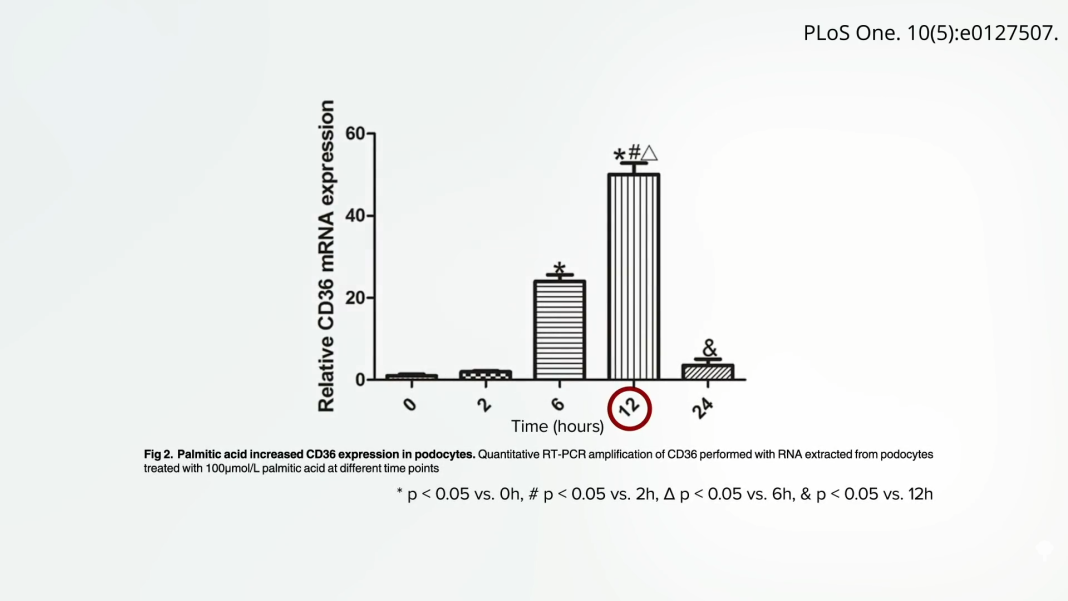Randomized managed trials present that decreasing saturated fats consumption can result in improved breast most cancers survival.
The main reason behind cancer-related dying is metastasis. Most cancers kills as a result of most cancers spreads. The five-year survival charge for ladies with localized breast most cancers is almost 99 %, for instance, however that falls to solely 27 % in girls with metastasized most cancers. But, “our potential to effectively deal with metastatic illness has not modified signiï¬cantly previously few many years…†The desperation is obvious when there are such papers as “Concentrating on Metastasis with Snake Toxins: Molecular Mechanisms.â€
We have built-in defenses, pure killer cells that roam the physique, killing off budding tumors. However, as I’ve mentioned, there’s a fats receptor known as CD36 that seems to be important for most cancers cells to unfold, and these most cancers cells reply to dietary fats consumption, however not all fats.
CD36 is upregulated by palmitic acid, as a lot as a 50-fold improve inside 12 hours of consumption, as proven beneath and at 1:13 in my video How one can Assist Management Most cancers Metastasis with Food plan.

Palmitic acid is a saturated fats constituted of palm oil that may be present in junk meals, however it’s most concentrated in meat and dairy. This will likely clarify why, when taking a look at breast most cancers mortality and dietary fats, “there was no distinction in threat of breast-cancer-speciï¬c dying…for ladies within the highest versus the bottom class of whole fats consumption,†however there’s a few 50 % better probability of dying of breast most cancers with greater consumption of saturated fats. Researchers conclude: “These meta-analyses have proven that saturated fats consumption negatively impacts breast most cancers survival.â€
This will likely additionally clarify why “consumption of high-fat dairy, however not low-fat dairy, was associated to the next threat of mortality after breast most cancers analysis.†If a protein in dairy, like casein, was the issue, skim milk is perhaps even worse, however that wasn’t the case. It’s the saturated butterfat, maybe as a result of it triggered that cancer-spreading mechanism induced by CD36. Girls who consumed a number of every day servings of high-fat dairy had a few 50 % greater threat of dying from breast most cancers.
We see the identical with dairy and its relationship to prostate most cancers survival. Researchers discovered that “ingesting high-fat milk elevated the chance of dying from prostate most cancers by as a lot as 600% in sufferers with localized prostate most cancers. Low-fat milk was not related to such a rise in threat.†So, it appears to be the animal fats, slightly than the animal protein, and these findings are in step with analyses from the Well being Professionals Comply with-up Research (HPFS) and the Physicians’ Well being Research (PHS), performed by Harvard researchers.
There may be much more proof that the fats receptor CD36 is concerned. The “threat of colorectal most cancers for meat consumption†elevated from a doubling to an octupling—that’s, the percentages of getting most cancers multiplied eightfold for individuals who carry a selected kind of CD36 gene. So, “Is It Time to Give Breast Most cancers Sufferers a Prescription for a Low-Fats Food plan?†A most cancers analysis is sometimes called a ‘teachable second’ when sufferers are motivated to make adjustments to their way of life, and so provision of evidence-based pointers is crucial.â€
In a randomized, potential, multicenter scientific trial, researchers set out “to take a look at the impact of a dietary intervention designed to cut back fats consumption in girls with resected, early-stage breast most cancers,†that means the ladies had had their breast most cancers surgically eliminated. As proven beneath and at 4:02 in my video, the research contributors within the dietary intervention group dropped their fats consumption from about 30 % of energy down to twenty %, decreased their saturated fats consumption by about 40 %, and maintained it for 5 years. “After roughly 5 years of follow-up, girls within the dietary intervention group had a 24% decrease threat of relapseâ€â€”a 24-percent decrease threat of the most cancers coming again—“than these within the management group.â€Â

That was the WINS research, the Girls’s Intervention Diet Research. Then there was the Girls’s Well being Initiative research, the place, once more, girls have been randomized to decrease their fats consumption down to twenty % of energy, and, once more, “these randomized to a low-fat dietary sample had elevated breast most cancers total survival. Which means: A dietary change could possibly affect breast most cancers final result.†What’s extra, not solely was their breast most cancers survival considerably better, however the girls additionally skilled a discount in coronary heart illness and a discount in diabetes.

